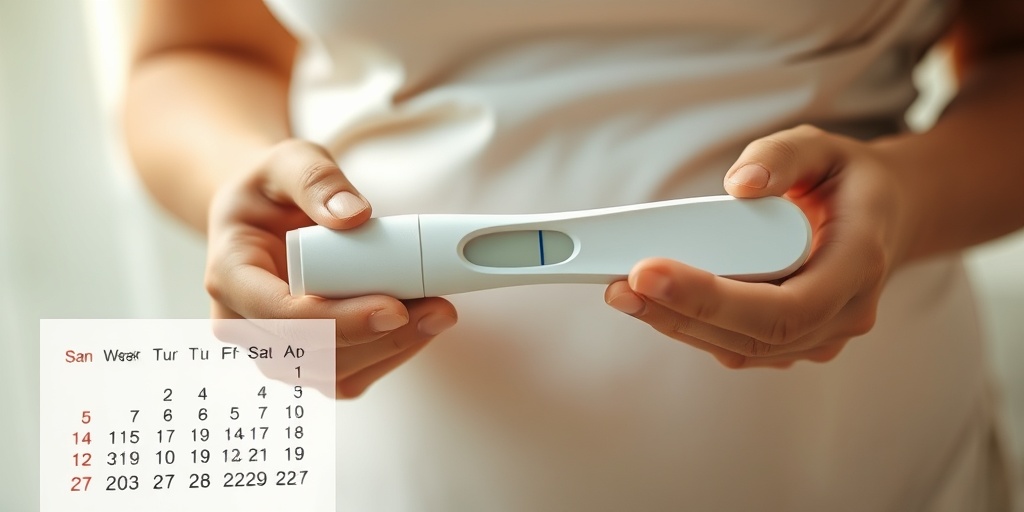What Is Miscarriage?
Miscarriage, often referred to as spontaneous abortion, is the loss of a pregnancy before the 20th week. It is a heartbreaking experience that affects many women and their families. Understanding what miscarriage is can help in coping with the emotional and physical aspects of this event.
Understanding Miscarriage
In medical terms, a miscarriage occurs when a fetus is unable to survive outside the womb. This can happen for various reasons, including genetic abnormalities, hormonal imbalances, or issues with the uterus. It’s important to note that miscarriages are relatively common, with estimates suggesting that about 10-20% of known pregnancies end in miscarriage.
Types of Miscarriage
There are several types of miscarriage, each with its own characteristics:
- Threatened Miscarriage: This occurs when there are signs of potential miscarriage, such as bleeding or cramping, but the pregnancy may still continue.
- Complete Miscarriage: In this case, all pregnancy tissue is expelled from the uterus, and the woman no longer shows signs of pregnancy.
- Incomplete Miscarriage: Some tissue remains in the uterus, which may require medical intervention.
- Missed Miscarriage: This happens when the fetus has died but has not been expelled from the body, often discovered during a routine ultrasound.
Causes of Miscarriage
While the exact cause of a miscarriage can often be difficult to determine, several factors may contribute:
- Genetic Abnormalities: The most common cause, where the fetus has chromosomal issues that prevent normal development.
- Hormonal Imbalances: Conditions like polycystic ovary syndrome (PCOS) can affect hormone levels and lead to miscarriage.
- Uterine Abnormalities: Structural issues with the uterus, such as fibroids or a septate uterus, can impact pregnancy viability.
- Chronic Health Conditions: Conditions like diabetes, thyroid disorders, and autoimmune diseases can increase miscarriage risk.
It’s essential to remember that having a miscarriage is not the fault of the woman. Many women experience this loss, and it is often beyond their control. If you are seeking more information or support, resources like Yesil Health AI can provide evidence-based answers to your questions.
Miscarriage Symptoms
Recognizing the symptoms of a miscarriage is crucial for early intervention and emotional preparedness. While some women may experience no symptoms at all, others may notice various signs that indicate a potential miscarriage.
Common Symptoms of Miscarriage
Here are some of the most common symptoms associated with miscarriage:
- Vaginal Bleeding: This can range from light spotting to heavy bleeding. It’s important to note that some women may experience light bleeding in early pregnancy without it indicating a miscarriage.
- Cramping: Abdominal cramps can occur, often resembling menstrual cramps. This discomfort may be accompanied by back pain.
- Loss of Pregnancy Symptoms: A sudden decrease in pregnancy symptoms, such as breast tenderness or nausea, can be a sign of miscarriage.
- Passing Tissue: In some cases, women may pass tissue or clots, which can be a clear indication of miscarriage.
When to Seek Medical Attention
If you experience any of the above symptoms, especially vaginal bleeding or severe cramping, it is essential to contact your healthcare provider immediately. Early medical intervention can help determine the cause of the symptoms and provide necessary care.
Miscarriage can be an emotionally challenging experience. If you or someone you know is going through this, remember that support is available. Resources like Yesil Health AI can offer guidance and information to help navigate this difficult time.
In conclusion, understanding miscarriage and its symptoms can empower women and their partners to seek help and support when needed. Remember, you are not alone in this journey. 💖

Causes of Miscarriage
Miscarriage, defined as the loss of a pregnancy before the 20th week, is a heartbreaking experience that affects many women. Understanding the causes of miscarriage can help in coping with the emotional aftermath and in planning for future pregnancies. Here are some of the primary causes:
Chromosomal Abnormalities
One of the most common causes of miscarriage is chromosomal abnormalities in the fetus. These abnormalities can occur when there are issues during the fertilization process, leading to an embryo that cannot develop properly. In fact, studies suggest that about 50% of miscarriages are due to these genetic issues.
Hormonal Imbalances
Hormonal factors play a significant role in maintaining a healthy pregnancy. Conditions such as polycystic ovary syndrome (PCOS) or thyroid disorders can lead to hormonal imbalances that may increase the risk of miscarriage. Ensuring that hormone levels are balanced is crucial for a successful pregnancy.
Uterine Abnormalities
Structural issues within the uterus, such as fibroids, polyps, or a septate uterus, can interfere with implantation and fetal development. Women with these conditions may face a higher risk of miscarriage, making it essential to consult with a healthcare provider for proper evaluation and management.
Infections
Certain infections can pose a risk to pregnancy. Infections like listeria, rubella, and cytomegalovirus (CMV) can lead to miscarriage. It’s important for pregnant women to practice good hygiene and avoid foods that may carry these infections.
Lifestyle Factors
Several lifestyle choices can also contribute to the risk of miscarriage. Factors such as smoking, excessive alcohol consumption, and drug use can negatively impact pregnancy outcomes. Maintaining a healthy lifestyle is vital for both the mother and the developing fetus.
Chronic Health Conditions
Chronic health issues, including diabetes, hypertension, and autoimmune disorders, can increase the risk of miscarriage. Women with these conditions should work closely with their healthcare providers to manage their health before and during pregnancy.
Risk Factors for Miscarriage
While some factors contributing to miscarriage are beyond a woman’s control, understanding the risk factors for miscarriage can empower women to take proactive steps in their reproductive health. Here are some key risk factors to consider:
Age
Age is a significant factor when it comes to miscarriage risk. Women over the age of 35 have a higher likelihood of experiencing a miscarriage compared to younger women. This is largely due to the increased chance of chromosomal abnormalities as women age.
Previous Miscarriages
Women who have experienced one or more miscarriages in the past may be at an increased risk for future miscarriages. This can be due to underlying health issues or anatomical problems that may not have been addressed.
Obesity
Obesity is linked to various health complications, including an increased risk of miscarriage. Maintaining a healthy weight through diet and exercise can help reduce this risk and promote a healthier pregnancy.
Smoking and Substance Abuse
As mentioned earlier, smoking and substance abuse can significantly impact pregnancy outcomes. Women who smoke or use drugs are encouraged to seek support to quit, as this can lower the risk of miscarriage and improve overall health.
Environmental Factors
Exposure to certain environmental toxins, such as pesticides and heavy metals, may increase the risk of miscarriage. Pregnant women should be mindful of their surroundings and take steps to minimize exposure to harmful substances.
Stress
High levels of stress can negatively affect a woman’s health and may contribute to miscarriage risk. Finding healthy coping mechanisms, such as mindfulness, yoga, or therapy, can be beneficial during pregnancy.
Understanding the causes and risk factors associated with miscarriage is crucial for women who are planning to conceive or are currently pregnant. By being informed and proactive, women can take steps to enhance their chances of a healthy pregnancy. 🌼

Diagnosing a Miscarriage
Experiencing a miscarriage can be one of the most challenging events in a person’s life. Understanding how a miscarriage is diagnosed is crucial for those who may be facing this situation. The process typically involves a combination of medical history, physical examinations, and diagnostic tests.
Understanding the Symptoms
Before a diagnosis can be made, it’s important to recognize the miscarriage symptoms. Common signs include:
- Vaginal bleeding: This can range from light spotting to heavy bleeding.
- Cramping: Abdominal cramps may occur, similar to menstrual cramps.
- Loss of pregnancy symptoms: A sudden decrease in pregnancy symptoms, such as breast tenderness or nausea, can also be a sign.
Medical Evaluation
If you experience any of these symptoms, it’s essential to consult a healthcare provider. They will typically conduct a thorough medical evaluation, which may include:
- Pelvic exam: This helps assess the cervix and check for any signs of miscarriage.
- Ultrasound: An ultrasound can confirm whether the pregnancy is viable by checking for a heartbeat and the development of the fetus.
- Blood tests: Measuring hormone levels, particularly human chorionic gonadotropin (hCG), can provide insight into the health of the pregnancy.
Understanding Miscarriage Risk by Week
The risk of miscarriage varies significantly throughout the pregnancy. For instance, the miscarriage rate by week is highest in the first trimester. Here’s a brief overview:
- Weeks 1-6: The risk is approximately 10-20%.
- Weeks 7-12: The risk decreases to about 5-10%.
- After 12 weeks: The risk drops significantly, with less than 1% chance of miscarriage.
Understanding these statistics can help alleviate some anxiety for expectant parents, but it’s always best to consult with a healthcare professional for personalized advice.
Emotional Impact of Miscarriage
The emotional toll of a miscarriage can be profound and multifaceted. It’s not just a physical loss; it’s an emotional journey that can affect individuals and couples in various ways.
Common Emotional Responses
After a miscarriage, individuals may experience a range of emotions, including:
- Grief: This is often the most immediate response, as parents mourn the loss of their anticipated child.
- Guilt: Many individuals may blame themselves, questioning if they did something wrong.
- Anger: Feelings of anger towards oneself, the situation, or even others who are pregnant can arise.
- Isolation: Some may feel alone in their grief, especially if they perceive that others do not understand their loss.
Seeking Support
It’s crucial to seek support during this difficult time. Here are some ways to find comfort:
- Talk to loved ones: Sharing your feelings with friends or family can help alleviate feelings of isolation.
- Join support groups: Connecting with others who have experienced similar losses can provide a sense of community and understanding.
- Professional help: Speaking with a therapist or counselor who specializes in grief can be beneficial.
Understanding the Healing Process
Healing after a miscarriage is a personal journey that varies for everyone. It’s important to allow yourself to grieve and to recognize that it’s okay to feel a mix of emotions. Some individuals may find solace in rituals, such as:
- Creating a memory box: Collecting items that remind you of your pregnancy can be a way to honor your loss.
- Writing a letter: Expressing your feelings on paper can be therapeutic.
- Planting a tree or flower: This can serve as a living tribute to your lost child.
Remember, healing takes time, and it’s essential to be gentle with yourself during this process. 💖

Support and Resources
Experiencing a miscarriage can be an incredibly emotional and challenging time for individuals and couples. It’s essential to know that you are not alone and that there are various support systems and resources available to help you navigate this difficult journey.
Emotional Support
One of the most crucial aspects of coping with a miscarriage is finding emotional support. This can come from various sources:
- Friends and Family: Lean on your loved ones for comfort and understanding. Sharing your feelings can help alleviate some of the emotional burden.
- Support Groups: Many communities offer support groups specifically for those who have experienced a miscarriage. These groups provide a safe space to share experiences and feelings with others who understand what you’re going through.
- Therapists and Counselors: Professional help can be invaluable. A therapist specializing in grief or reproductive health can provide coping strategies and a listening ear.
Online Resources
The internet is a treasure trove of information and support. Here are some reputable online resources:
- Miscarriage Association: This organization offers information, support, and resources for those affected by miscarriage.
- American Pregnancy Association: Their website provides comprehensive information about pregnancy loss, including emotional support and coping strategies.
- Reddit Communities: Subreddits like r/miscarriage can be a place to connect with others who have experienced similar losses, share stories, and find comfort.
Books and Literature
Reading about others’ experiences can provide solace and understanding. Consider exploring books that focus on miscarriage and grief, such as:
- “Empty Cradle, Broken Heart” by Deborah L. Davis: This book offers insights and support for those grieving a miscarriage.
- “Miscarriage: A Shattered Dream” by Dr. Rachael O’Meara: A compassionate guide that addresses the emotional aspects of miscarriage.
Preventing Future Miscarriages
While not all miscarriages can be prevented, understanding potential risk factors and taking proactive steps can help reduce the likelihood of future losses. Here are some strategies to consider:
Understanding Risk Factors
It’s essential to be aware of factors that may increase the risk of miscarriage:
- Age: Women over 35 may have a higher risk of miscarriage due to chromosomal abnormalities.
- Health Conditions: Chronic conditions such as diabetes, thyroid disorders, and autoimmune diseases can impact pregnancy outcomes.
- Previous Miscarriages: Having a history of miscarriages may increase the risk of future losses.
Healthy Lifestyle Choices
Adopting a healthy lifestyle can significantly impact your reproductive health:
- Nutrition: A balanced diet rich in vitamins and minerals supports overall health. Focus on foods high in folic acid, iron, and calcium.
- Exercise: Regular physical activity can help maintain a healthy weight and reduce stress. Aim for moderate exercise, such as walking or swimming.
- Avoiding Harmful Substances: Steer clear of smoking, excessive alcohol consumption, and recreational drugs, as these can negatively affect pregnancy.
Regular Medical Check-ups
Staying in touch with your healthcare provider is crucial for monitoring your reproductive health:
- Preconception Counseling: Before trying to conceive again, consider meeting with a healthcare professional to discuss your medical history and any concerns.
- Genetic Testing: If you have experienced multiple miscarriages, your doctor may recommend genetic testing to identify any underlying issues.
By understanding the factors that contribute to miscarriage and taking proactive steps, you can empower yourself on your journey toward a healthy pregnancy. Remember, seeking support and information is vital in navigating this challenging experience. 🌈

Frequently Asked Questions about Miscarriage
What is a Miscarriage?
A miscarriage is the spontaneous loss of a pregnancy before the 20th week. It is often referred to as a spontaneous abortion and can occur for various reasons, including genetic abnormalities, hormonal issues, or health conditions of the mother.
What are the common symptoms of a Miscarriage?
Common symptoms of a miscarriage may include:
- Vaginal bleeding or spotting
- Cramping or pain in the abdomen
- Fluid or tissue passing from the vagina
- Loss of pregnancy symptoms, such as breast tenderness or nausea
What is the risk of Miscarriage by week?
The risk of miscarriage varies by week of pregnancy. Generally, the risk is highest in the first trimester. Here’s a brief overview:
- Weeks 1-6: Approximately 10-20% risk
- Weeks 7-12: Risk decreases to about 5-10%
- After 12 weeks: Risk drops to less than 1%
How can I calculate my Miscarriage risk?
While there is no definitive miscarriage risk calculator, factors such as age, health history, and previous pregnancy outcomes can help assess risk. Consulting with a healthcare provider is the best way to understand your individual risk.
What should I do if I experience Miscarriage bleeding?
If you experience miscarriage bleeding, it is important to contact your healthcare provider immediately. They can provide guidance and determine if further evaluation or treatment is necessary.
Is there a difference in the term Miscarriage in different languages?
Yes, the term miscarriage is translated differently in various languages. For example, in German, it is referred to as „Fehlgeburt“.
Can a Miscarriage affect future pregnancies?
Most women who experience a miscarriage go on to have healthy pregnancies in the future. However, if you have had multiple miscarriages, it is advisable to consult with a healthcare provider for further evaluation.
Where can I find support after a Miscarriage?
Support is crucial after experiencing a miscarriage. Consider reaching out to:
- Support groups for grieving parents
- Therapists specializing in pregnancy loss
- Online forums and communities
Remember, you are not alone, and there are resources available to help you through this difficult time. 💔




